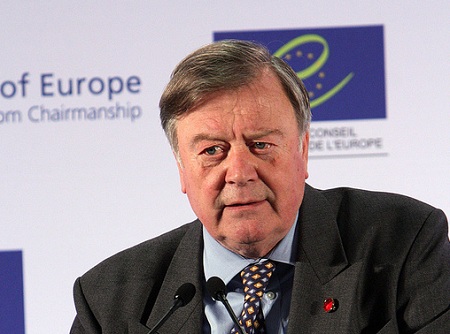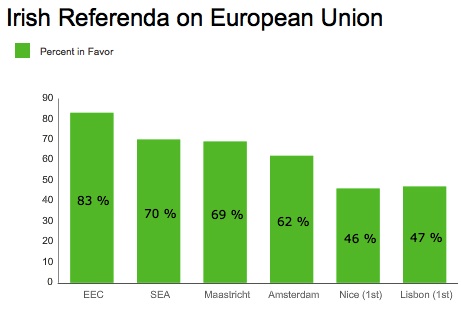Longtime senior Conservative Party grandee — and former chancellor of the exchequer — Kenneth Clarke (pictured above) in no uncertain terms yesterday said that a British exit from the European Union would be a disaster.![]()
![]()
That Clarke is pro-Europe is certainly not a surprise.
As former prime minister John Major’s chancellor from 1993 until the fall of the Tory government in the 1997 Labour electoral landslide, Clarke was the most prominent pro-European in Major’s government — at one point, Clarke was even in favor of the United Kingdom joining the eurozone. When Major’s government irreparably fractured over divisons on the UK’s role with respect to Europe, Clarke was most certainly the top general of the pro-European faction.
So it’s not a shock to see Clarke joining forces with Peter Mandelson, the former Labour veteran, and others for a cross-party effort to boost the United Kingdom’s continued presence in the European Union:
“There’s a broad range of opinion inside the [Conservative] party. The number of people who actually want to leave the European Union; it’s quite tiny. They get a disproportionate amount of attention. My guess is that there are about 30 who want to leave and when we first joined the European Community I think there was slightly more than that.”
He warned that it would be “pretty catastrophic” if Britain left the EU and said he was now resigned to fighting a referendum on the issue if the Conservatives win the next election.
“The background climate in this county has become … unremittingly hostile. I think somebody has got to make the positive case again. The climate of public opinion just needs to be reminded how essential it is if we really want the UK to play a part in the modern world,” he said.
But it’s another headache for UK prime minister David Cameron, who announced in a widely anticipated speech last week that he would seek to renegotiate the United Kingdom’s role in the EU and, thereupon, call a referendum on the UK’s continued membership by 2017 (obviously depending on the reelection of the Tories in the 2015 general election).
Clarke’s outspoken support shows just how difficult Cameron’s balancing act on Europe has become — and it will only be more difficult as a potential referendum approaches. Continue reading Clarke’s pro-Europe tone highlights referendum risk to UK Tories from the center

